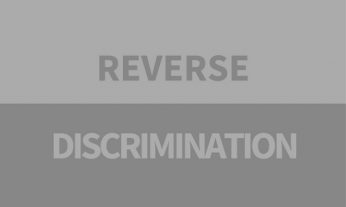 Are you being targeted for forced retirement? You enjoy working. You show up every day, ready to tackle the next project that comes your way. So, you are more than a little surprised when your boss suggests that retirement is something you should seriously consider. As time progresses, you find less significant tasks being assigned to you, and you notice younger employees eagerly attacking projects that used to be in your domain. Your employer is gently compelling you to ease on out the door. You start to question yourself: Are you too old for the job? Before you concede to your employer’s pressure to leave, you should really consult a knowledgeable employment attorney.
Are you being targeted for forced retirement? You enjoy working. You show up every day, ready to tackle the next project that comes your way. So, you are more than a little surprised when your boss suggests that retirement is something you should seriously consider. As time progresses, you find less significant tasks being assigned to you, and you notice younger employees eagerly attacking projects that used to be in your domain. Your employer is gently compelling you to ease on out the door. You start to question yourself: Are you too old for the job? Before you concede to your employer’s pressure to leave, you should really consult a knowledgeable employment attorney.
Forced Retirement – Legal Protections
Before you comply with the not-so-subtle forced retirement suggestion to pack up and leave, consider this: Federal law protects workers from being pushed out of a job with the Age Discrimination in Employment Act (ADEA) of 1967. Although some may view 65 as the desirable age for retirement, workers cannot be discriminated against due to their age. They certainly cannot be forced into a retirement that they do not want. The law applies to individuals aged 40 and older who work for a private company with at least 20 employees, or for any government entity. Not only are you protected from being forced out; if you are capable of performing your duties, your employer cannot demote you, insist you take a position with les responsibility, lower your pay, or move you into part-time work.
What About Benefits on the Job?
Older workers must be provided access to the same benefits as all other workers, as well. Even if you are eligible for Medicare, your health insurance benefits cannot be reduced. Beyond health care, other opportunities cannot be denied simply because of your age. You must have equal access to:
- Training opportunities;
- Prospects for promotions;
- Lateral movement in the company.
Exceptions: BFOQ
On the other hand, if your employer can demonstrate that your age is a bona fide occupational qualification (BFOQ), they may have grounds to discriminate. This is an unusual circumstance and is difficult to prove. (One possibility might be in casting for a commercial requiring a child actor). The employer, who has the burden of proof, must show three key facts:
- The job qualifications expected are reasonable and essential to the functioning of the business;
- Individuals over a particular age limit could not perform those duties with efficiency and safety;
- The practicability of assessing fitness for the job on an individual basis is unreasonable or impossible.









